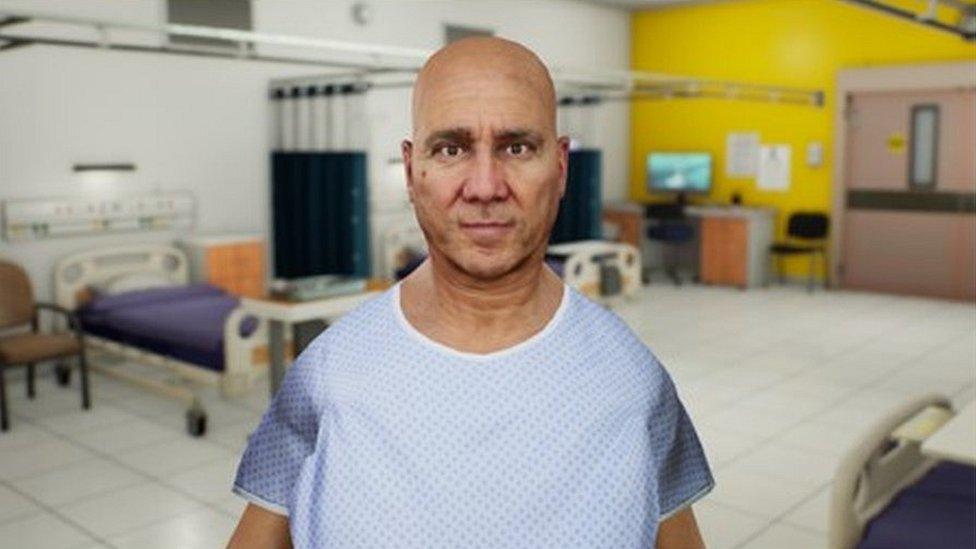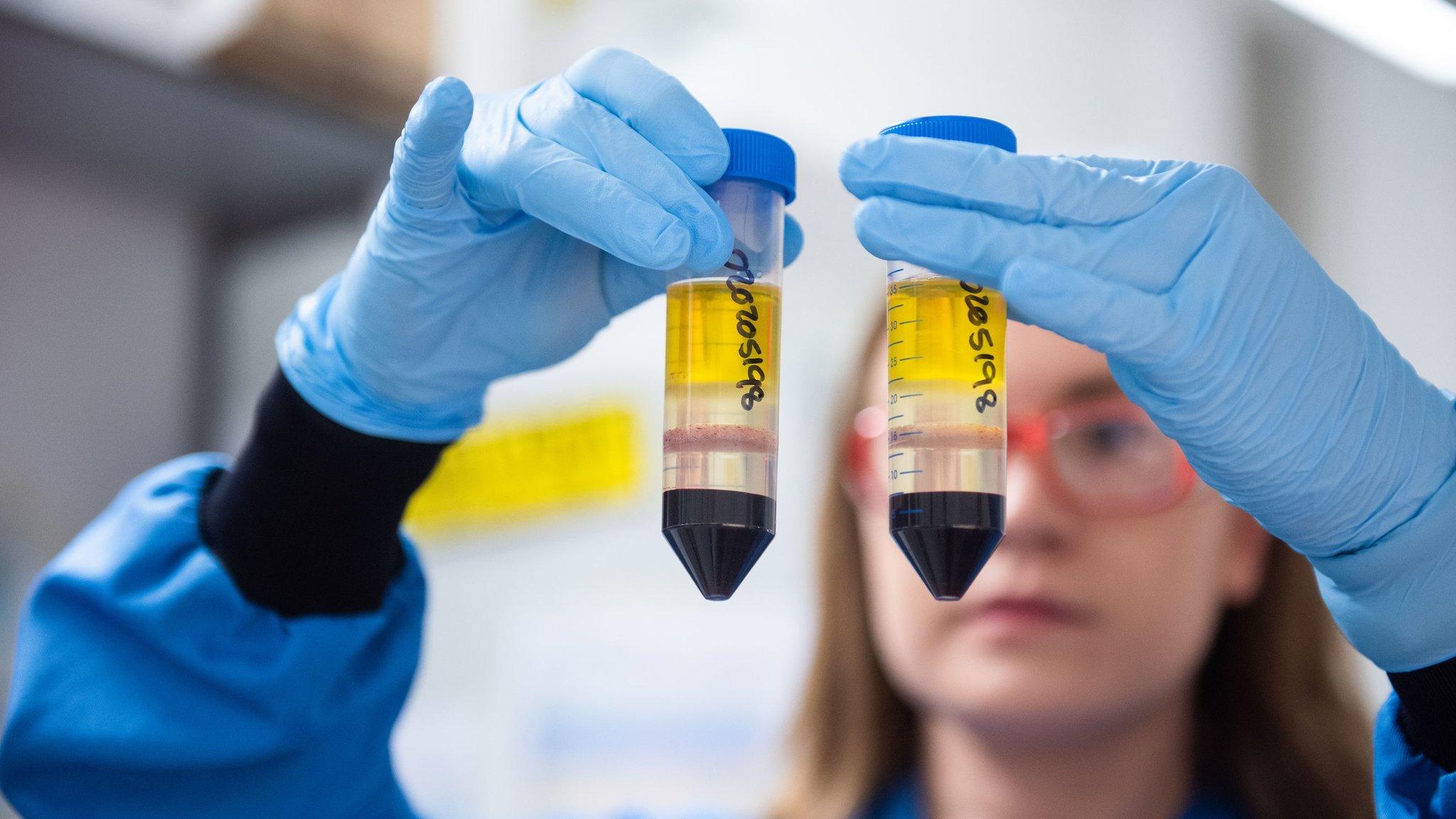'Virtual patient' helps train medics remotely during pandemic
- Published

The "virtual patient" can role-play life-like medical scenarios and be accessed via a computer
New AI technology has been developed so trainee medics can safely learn their skills remotely during the pandemic.
The "virtual patient" can role-play life-like scenarios and be accessed via a VR headset, PC or tablet.
It has proven so successful it was named one of TIME magazine's best inventions of 2020, external.
Creator Dr Alex Young, from Bristol, said the pandemic "has created really specific challenges that technology is helping to solve".
The orthopaedic and trauma surgeon said: "It's no longer safe or practicable to have 30 medics in a room with an actor, honing their clinical soft-skills."
The programme is designed to develop "soft skills" - something traditionally achieved with the help of actors playing the role of patients.
These sessions help train clinicians in how to explain diagnoses and treatment plans, build trust and handle challenging situations.
The technology is being used at Bristol NHS Foundation Trust to allow training to continue safely without the need for in-person sessions while social distancing is in place.
'Realistic experience'
It was also used at the peak of the pandemic to train NHS staff in key skills required on the front line such as how to safely use PPE, navigate an unfamiliar intensive care ward and engage with patients and their families.
Dr Young, whose company developed the technology, said: "We've been working with healthcare organisations for several years, but the pandemic has created really specific challenges.
"With our virtual patient technology, we've created an extremely realistic and repeatable experience that can provide feedback in real time. This means clinicians and students can continue to learn valuable skills."
Related topics
- Published23 November 2020

- Published6 November 2020
- Published8 July 2020
